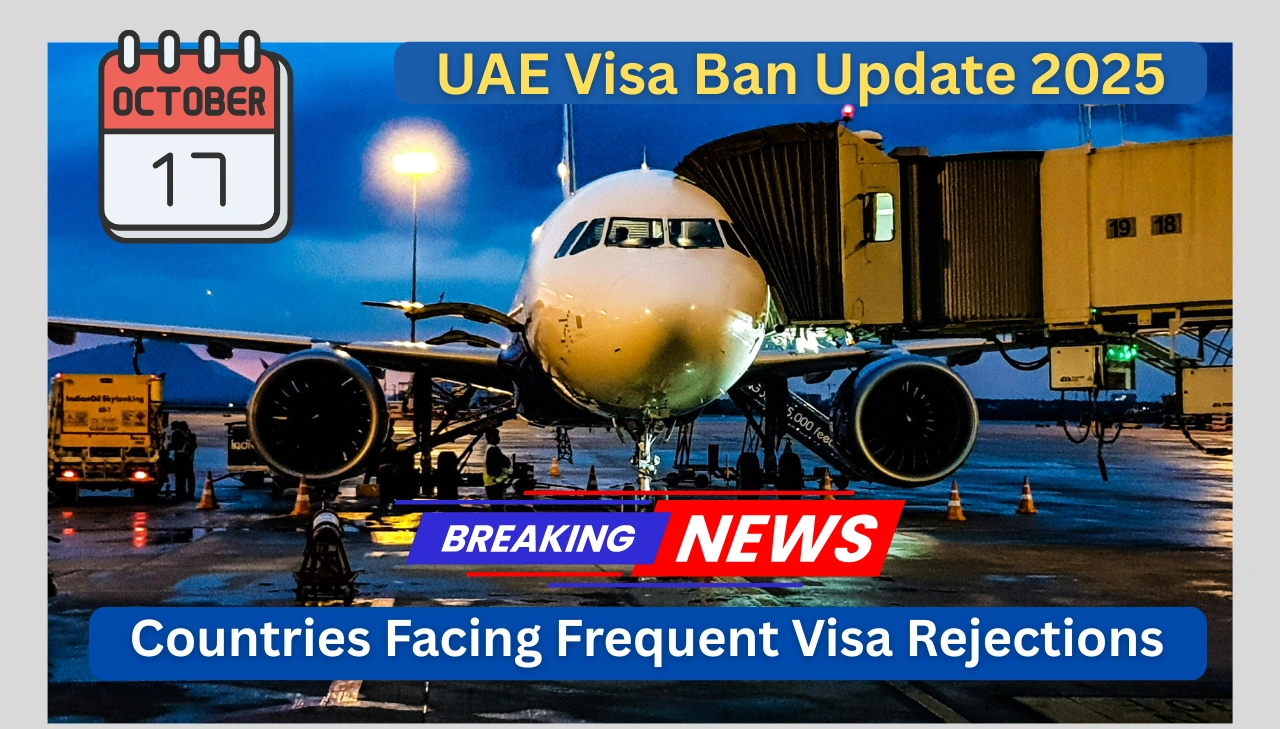The United Arab Emirates (UAE) continues to be one of the most popular destinations for tourism, business, and employment. Every year, thousands of people apply for UAE visas to visit cities like Dubai, Abu Dhabi, and Sharjah. However, in 2025, many travelers have raised concerns about a possible “UAE visa ban.” This article explains what’s really happening, who might be affected, and what you can do to ensure a smooth visa process.
No Official UAE Visa Ban in 2025
Let’s start with the most important fact — there is no official visa ban announced by the UAE government as of 2025. While some travelers from certain countries have reported that their visa applications were rejected or delayed, UAE authorities have not released any official statement confirming a country-wide ban.
These visa challenges appear to be temporary or case-specific rather than a formal policy change. The UAE often adjusts its visa processing system based on security checks, documentation issues, or changes in international relations.
Countries Facing Frequent Visa Rejections
Although no official list of banned countries exists, reports from applicants suggest that citizens from certain nations are facing more visa rejections than usual. These include:
-
Afghanistan – High rejection rates reportedly linked to security concerns.
-
Libya – Some applicants experiencing multiple denials due to regional stability issues.
-
Yemen – Delays in tourist and work visa processing.
-
Somalia – Work visa applications often placed under additional review.
-
Lebanon – Some cases of rejections based on individual assessments.
Applicants from other countries, including Nigeria and Sudan, have also mentioned difficulties in obtaining visas, but outcomes vary widely depending on documentation and application channels.
Why Are Some Visas Being Rejected?
While the UAE government rarely explains individual visa decisions, several common factors can lead to rejections:
-
Security and Background Checks: The UAE prioritizes safety, so applicants from regions with ongoing conflicts may face additional scrutiny.
-
Incomplete or False Documents: Submitting incorrect or forged papers often results in immediate rejection.
-
Previous Immigration Violations: Past overstays or unpaid fines in the UAE can affect new visa applications.
-
Diplomatic or Political Changes: Temporary restrictions may be placed depending on diplomatic relations.
These reasons are usually administrative rather than political, and they often change as situations improve.
Visa Ban vs. Travel Ban — Know the Difference
Many people confuse a visa ban with a travel ban, but they are not the same:
-
Visa Ban: A restriction that prevents citizens of certain countries from applying for new UAE visas.
-
Travel Ban: Applies to specific individuals due to legal issues, such as unpaid debts, court cases, or immigration violations.
A visa ban affects groups of applicants, while a travel ban targets individuals.
When Restrictions Are Lifted
If temporary visa restrictions are removed, affected travelers can reapply for UAE visas through official government websites or authorized travel agents. They will again be eligible for tourist, business, or work visas once the normal process resumes.
Always check updates on:
-
The UAE Federal Authority for Identity and Citizenship (ICP) website
-
The UAE embassy or consulate in your country
How to Improve Your Chances of Visa Approval
To avoid delays or rejection, follow these key steps:
-
Use official or trusted channels for visa applications.
-
Submit genuine and complete documents, including valid passports and proof of income.
-
Avoid overstaying on any UAE visa, as it can affect future applications.
-
Stay informed by checking travel advisories and embassy announcements regularly.
Key Takeaway
As of October 2025, there is no confirmed UAE visa ban for any country. However, some applicants continue to face temporary restrictions or individual rejections due to documentation or background issues.
The best approach is to stay updated through official sources, follow all UAE visa requirements carefully, and ensure all information provided is accurate and genuine. With proper preparation, most travelers can still enjoy smooth entry into the UAE for tourism, work, or business.

